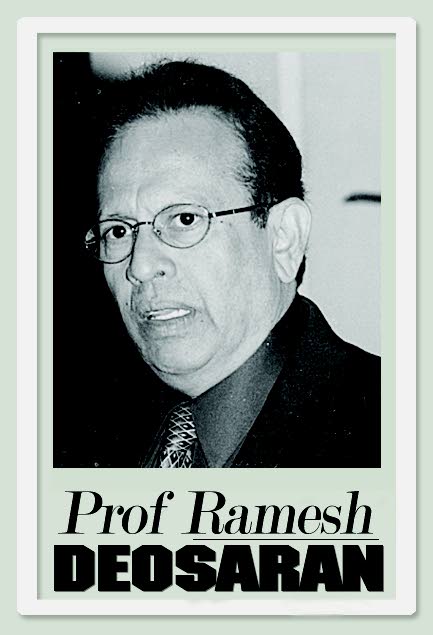The dynamic MPs

Dynamic. This is described as being “energetic, active, potent.” In politics – especially in Parliament or on campaign platforms – if you can’t be dynamic, at least now and again, well, you may not last long, unless your leader likes you very much for something else. In fact, there are some MPs who would flourish better elsewhere.
Aside from experienced players in the Lower House like PM Dr Rowley, Opposition Leader Kamla Persad-Bissessar, Colm Imbert, Dr Roodal Moonilal and Faris Al-Rawi, I noticed from private motion three Fridays ago and the recent budget debate, some dynamic presentations by MPs Lovell Francis, Rushton Paray, Terrence Deyalsingh, Barry Padarath and Rodney Charles.
Aside from mutual antagonisms and worrying matters such as white-collar crime, MPs’ debating style is also a matter of public interest.
Moruga MP Dr Francis’ announcement of a very modified system of scholarships – fewer doctors and lawyers – will certainly trigger a quarrel more intense than the publication of SEA results. As he energetically explained, this shift is to award scholarships “to assist in the nation’s social and economic development.”
The modest Mayaro MP Paray – a persistent pleader for government help against praedial larceny, floods, potholed roads, water shortages and unemployment in Mayaro – made an energetic, persuasive presentation. This was through Caroni Central MP Bhoe Tewarie’s private motion seeking to show the “fiscal recklessness and financial mismanagement” of the Government. Madam Speaker, “this Government is disconnected, very disconnected to the people,” while “people are in hardships,” he repeated. Dr Tewarie’s ideas always seem to be still in reflective mode – slow, thoughtful, deliberate, encouraging listeners to wait a while.
Take Naparima MP Charles during the budget debate with his repeated “no results here,“ “nothing there” while pointing to the government ten-point anti-crime plan. More than this, he demonstrates a “Uriah Butler-type” body language – waving hands, full-voiced, vivaciously pointing, prayerfully looking at the roof. No doubt a persuasive political platform salesman – without the spinning wheel.
You know, MP Marlene McDonald was one of the Government’s most energetic, active and even potent speakers, both in Parliament and on the platform. The most memorable for me was her speech on the death penalty while in opposition.
But it was St Joseph MP and Health Minister Deyalsingh who confidently came with what he saw as a “game-changer.” Tackling one of Persad-Bissessar’s most cherished “political babies,” if not the most cherished, Deyalsingh, after defining the word “excellent,” announced that the Couva Children Hospital would be re-named and re-designed with an international system of specialised services backed by expert research, etc.
UNC MPs seemed taken by surprise. Barataria MP Fuad Khan rose to tactfully indicate that he somewhat agreed with Deyalsingh, since most of what the PNM's Deyalsingh announced fell into the UNC’s initial framework for the Couva Hospital. Persad-Bissessar smiled. Some MPs looked around, as if puzzled at what they were hearing. Deyalsingh sounded as if his plans, which had assuredly gained the PM’s approval, were the best thing since sliced bread. Anyhow, his elaborate plan, apart from his obligatory criticisms of Persad-Bissessar’s initiative, seemed to gain some favour – for now. This was after Finance Minister Imbert described criticisms of his budget as just “hot air” and Public Utilities Minister Robert Le Hunte strove to pour cold water on countless water shortage complaints.
Princes Town MP Padarath has surprised me. I knew him as a quiet, courteous and diligent aide to Persad-Bissessar when she was PM. His performance today as Opposition MP attracts my attention – especially during taunts from Imbert, Young, Fitzgerald Hinds and Al-Rawi. Padarath’s political confidence, articulation and courage – even in the face of heckling – raise eyebrows.
In my almost 15 years as an independent senator, it was both joy and learning when MPs spoke eloquently, passionately and with convincing knowledge – vitalised with spots of research and humour. And perhaps most of all, if delivered only with quick glances at brief notes. Best of all, when extempore. The late PM Patrick Manning, like his successor Dr Rowley, was a master orator. Like Dr Rowley, he often spoke with no prepared speech. The very word “Parliament” means “speaking, parlay.” Oratorical skills during debate showcase Parliament at its best, and those MPs good at it are the most dynamic.

Comments
"The dynamic MPs"